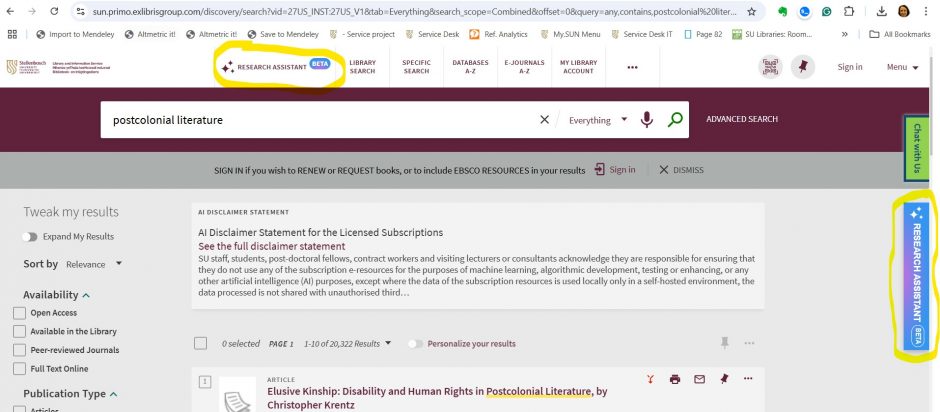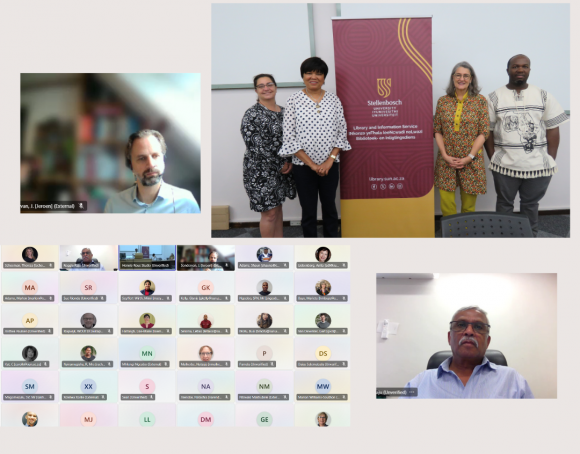Gallagher, J.R. 2024. Case Study Research in the Digital Age. Abingdon, Oxon; Routledge. DOI: 10.4324/9781003402169.

The advent of information technologies (IT) has drastically changed modern life. IT has impacted how society works, for instance, writing and reading are now predominantly done on computers, instead of paper. The development of the internet further emphasises the transformational impact of IT, on daily lives, to most, unimaginably with their smart cellular phones. This era, termed the Digital Age, and sometimes, the Information Society, is characterised by rapid and constant changes in all aspects of society. This book intends to demonstrate how this digital age has permeated case studies in scientific research. Gallager argues that case study research needs to be reconsidered and updated to fit with the digital nature of modern human life. In an elaborate development of his argument, Gallagher, convincingly unpacks case study research, and recontextualizes it in the digital context.
Drawing on the author’s more than twenty years experience as a Writing and Rhetoric researcher, and affiliated with Information Science, at the University of Urbana-Champaign, the book foregrounds its theoretical rationale in the ‘Introduction’. The rationale is further developed in Chapter 1, which deals with definitions and the book’s central theme, entities [own emphasis]. In Chapter 2, a link is created between ‘Iterative bounding’ and digital research, to develop the book’s conceptual framework. Data collection, phrased as ‘collections practices’, is explained in Chapter 3. Logically, data analysis in digital case studies follows, in Chapter 4, which is divided into four parts. Chapter 5 concentrates on ethics, this chapter can be read before data collection and analysis, as it is applicable throughout the research process. Special considerations in ‘Writing and visualizing the digital case’, are explained in Chapter 6. The book concludes by noting the emergence of artificial intelligence and its potential implications on case study research.
Gallagher argues that the current digital age requires reimagining case studies, not just as a method or technique, but also as methodology. The advantage of marrying case study with digital research is motivated. Both can be understood as complex, messy, and flexible boundaries (Gallagher, 2024:3). The rationale for the book is justified by claiming that most prominent literature on case studies has not considered the digital networked nature of the modern, and therefore the
“…approaches of these books can be applied to… digital context but their frameworks are not explicitly designed for such contexts.” (Gallagher, 2024:4). Crucially the book motivates for replacing ‘unit of analysis’ with ‘entity’ as the central concept in case studies. It maintains that the term unit connotates a bounded reality, which does not suit the messy and porous boundaries of modern life, because of networked information technologies.
Although the argument is well explained, it was challenging to grasp how this necessitated reconceptualizing case studies entirely as digital phenomena. The argument of the book, to review case study in the digital pervasive human existence, is further developed in the latter chapters of the book by providing examples to demonstrate the inadequacy of the positivist bounded holism case study approaches, as espoused by Stake (1995) and Yin (2009) (Gallagher, 2024:39). Although the book adds additional digital dimensions to case studies, such as web-scraping boundaries (Gallagher, 2024:86) and facets of digital data boundaries (Gallagher, 2024:93), it does concede that the traditional case study approach should not be discarded. The book integrates the traditional qualitative and quantitative data analysis techniques, for instance, workflow boundaries (Gallagher, 2024:100), data cleaning boundaries (Gallagher, 2024:105), with digital affordances, such as topic modelling using computer algorithms, and identifying themes, through machine learning language models. However, these digital additions, seem to be related to practicalities, and may not explain the call to, for instance, replace ‘unit of study’ with ‘entity’, as argued.
The concept of adapting case study as a methodology to align with the flexible, boundless and networked digital world advanced by Gallager, is timely. Especially, as the author noted, with the growth of artificial intelligence (AI) and the ethical questions around bias, because of scraping the existing unbalanced content on the internet, as well as distinguishing between human and machine writing (Gallagher, 2024:121). The thesis of the book will be of interest to researchers and students involved in case study research, and research generally, as it foregrounds digital research, which is a fact of modern-day research life.
Author: Joseph Mangadi, Faculty Librarian: Science




